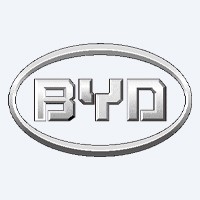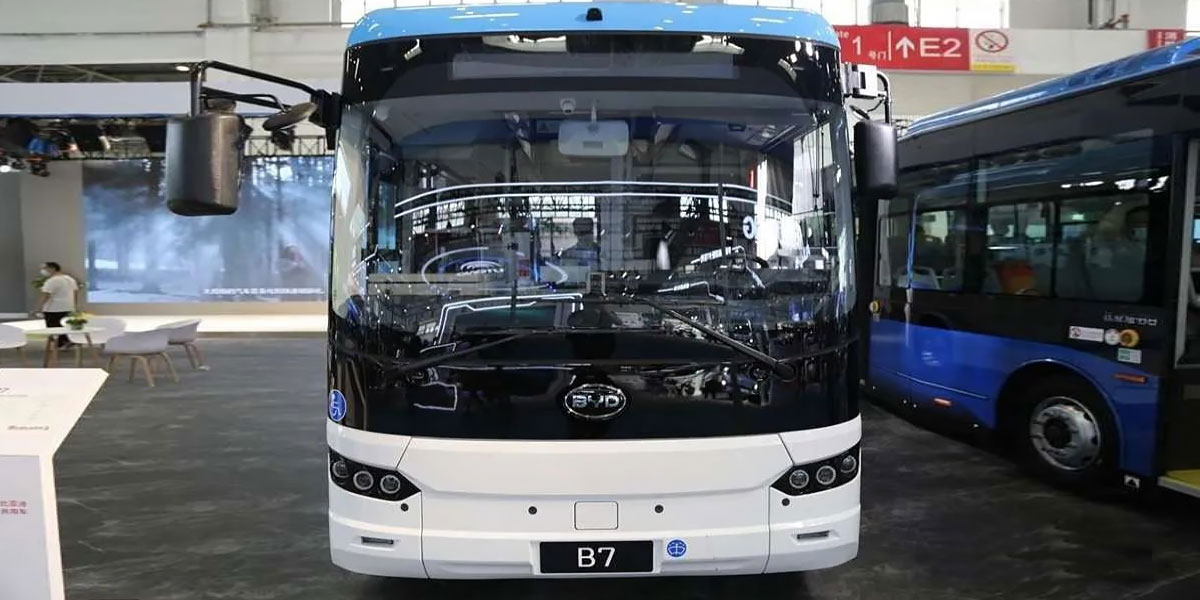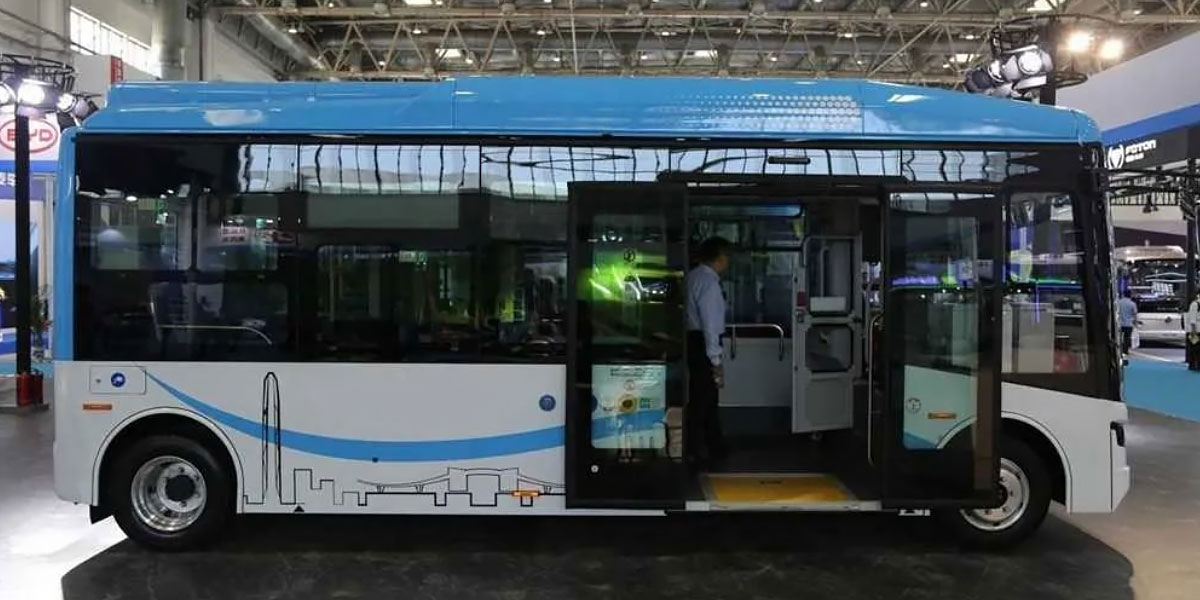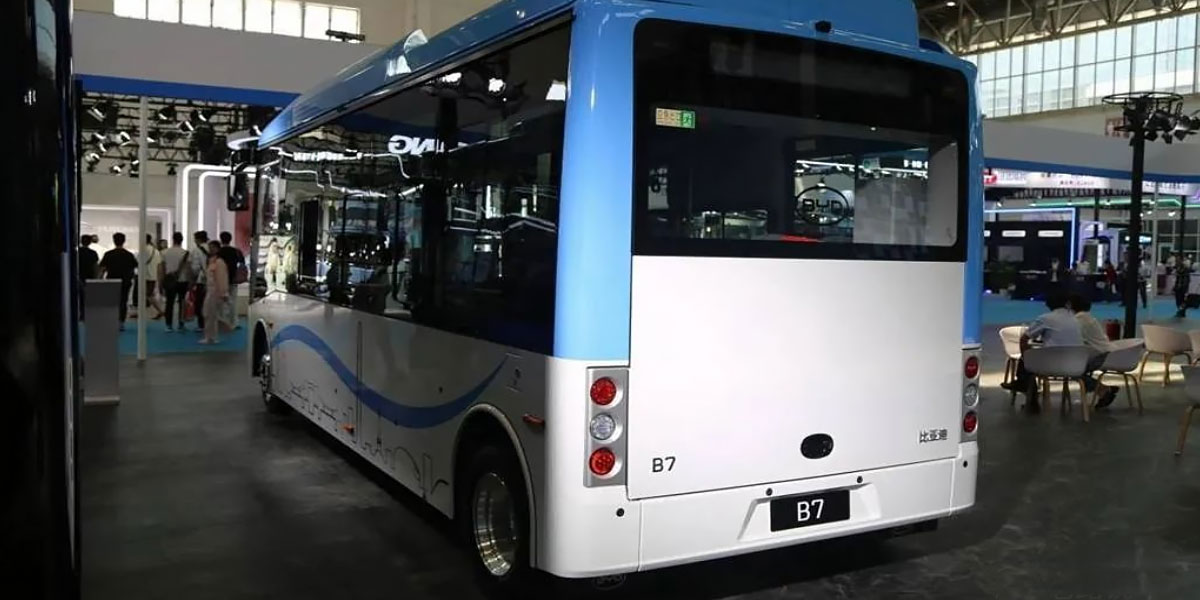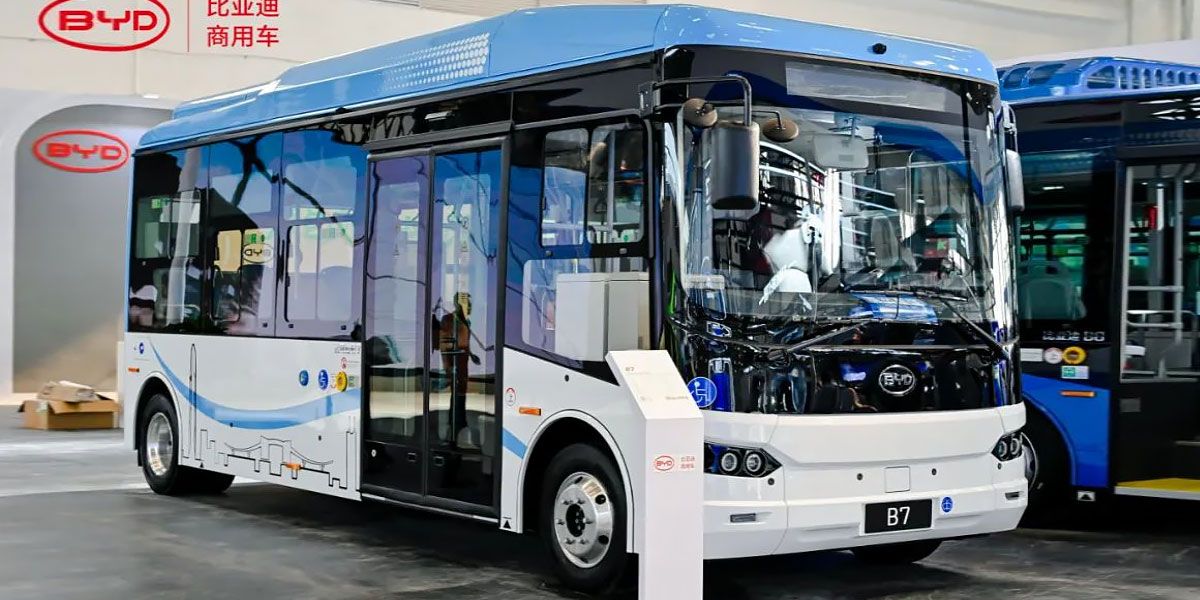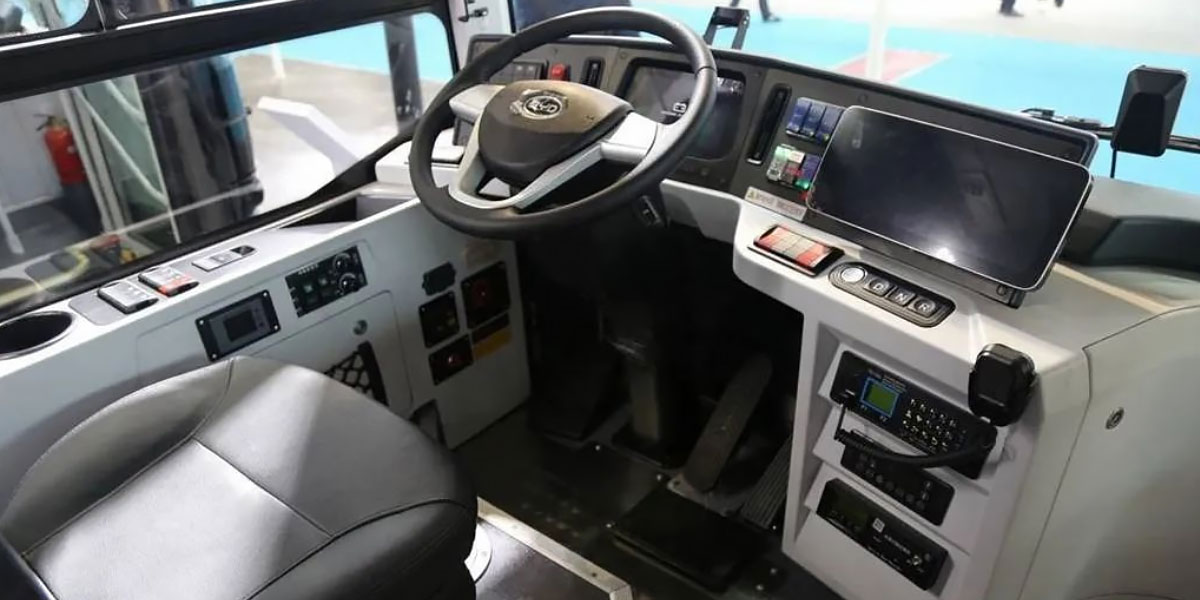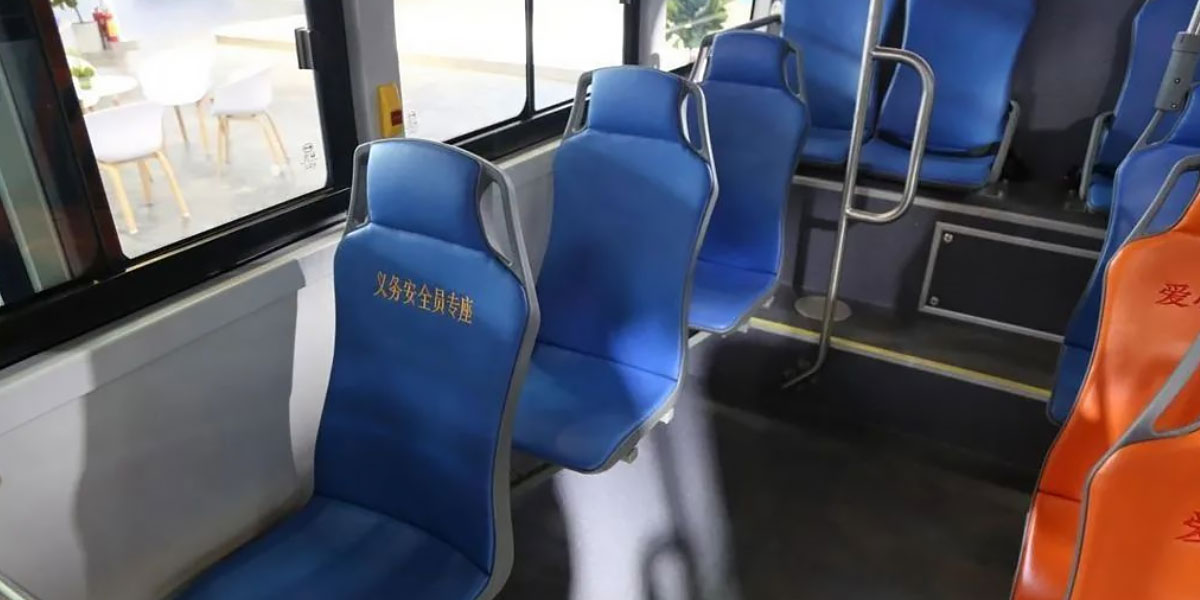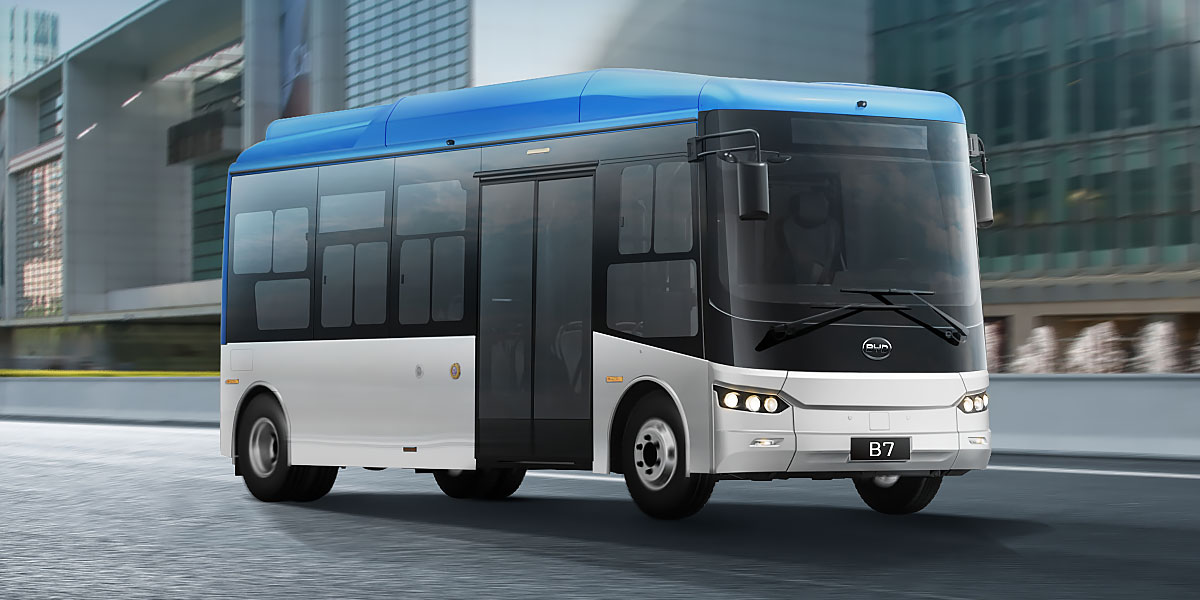BYD B7
The BYD B7 is a 6-meter electric mini coach bus from China with a 120 kWh LFP battery, 225 km (140 mi) range, and seating for up to 42 passengers. Launched in 2024, it supports fast charging and costs $97,000 (€90,210/£76,630).
User Rating: 4 / 5 (47 votes)





Base Trim Price: $97000 USD *
| manufactured in | China |
| model year | 2024 |
| range (km) | 225 |
| battery (kWh) | 120 |
| bus type | coach bus |
| passengers (qty) | 42 |
| seats (qty) | 22 |
* Minimum price set for the base trim by the manufacturer
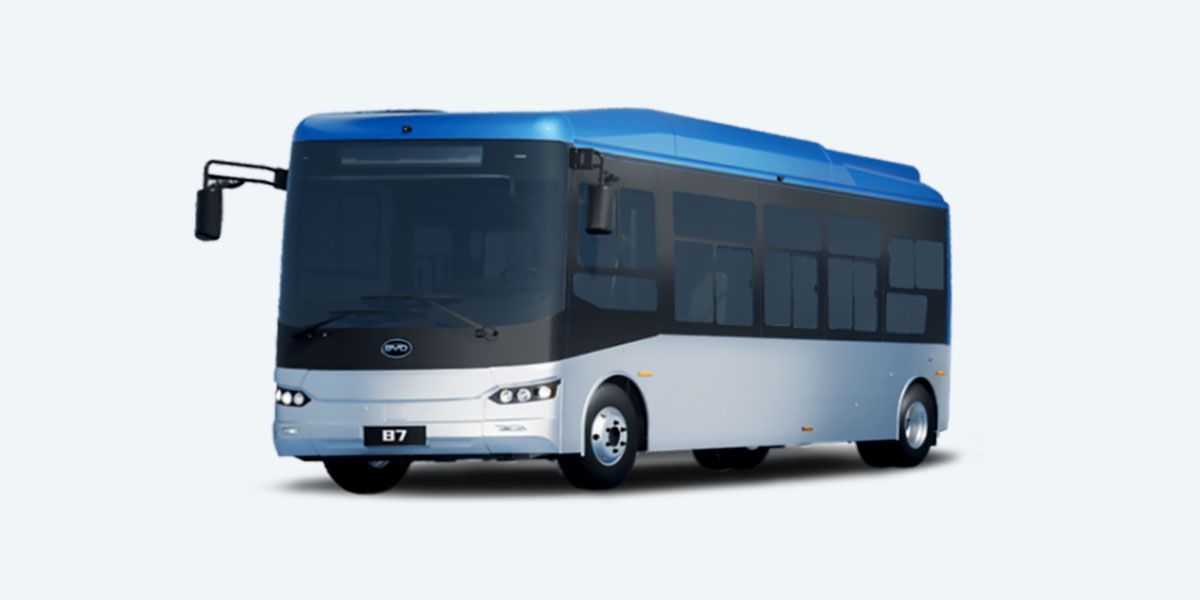
Exterior and Interior photos of BYD B7
BYD B7 Review
BYD B7: The Nimble Electric Mini Coach Built for City Streets
The BYD B7 mini electric coach might be compact, but it doesn’t mess around. Rolled out in 2024 by China’s EV powerhouse Build Your Dreams (BYD), this 6-meter all-electric bus is designed to squeeze through tight urban corners and still haul a crowd. It’s priced at $97,000 (€90,210/£76,630), making it one of the more affordable entries in the electric coach game. While it doesn’t shout luxury, it delivers where it counts—efficiency, flexibility, and sustainability.
- Unveiled in 2024, the BYD B7 was positioned as a cost-effective alternative for shuttle, school, and city fleet buyers.
- Priced at $97,000 (€90,210/£76,630), the B7 hits the sweet spot between affordability and real-world usability.
- Manufactured in China, the coach is backed by BYD’s global EV pedigree, with over 70,000 buses delivered worldwide.
- Offered as a compact coach, it’s purpose-built for operators juggling tight streets, budget limits, and zero-emission goals.
Specs Breakdown: BYD B7 Electric Coach Specs & Performance
Battery: Energy-Dense, Fast-Charging Blade Power
Under the floor of the BYD B7 sits a 120 kWh lithium iron phosphate (LFP) Blade Battery—a safer, cooler alternative to traditional lithium-ion cells. The energy density and modular layout of the pack help this electric coach stretch out a solid 225 km (140 mi) on a full charge. Whether you’re hauling kids or commuters, the B7 charges up quick: DC fast charging zaps it from 30% to 80% in as little as 10 minutes, while AC charging handles the overnight shifts.
- Battery capacity: 120 kWh LFP Blade
- Range: 225 km (140 mi)
- Charging options: AC 40–120 kW (3–8 hours), DC 150–450 kW (10–30 minutes)
- Regenerative braking: Standard
Performance: Small Dimensions, Big Flexibility
This isn’t a rocket—but for a 6,990 mm (22.9 ft) vehicle, it hustles just fine. Max speed falls between 111–130 km/h (69–81 mph), which is plenty for intra-city routes and even short express corridors. With a tight turning radius and “zero rear overhang” design, the B7 handles narrow European alleys or Asian backstreets with surprising grace. The electric motor provides whisper-quiet propulsion, while suspension geometry handles bumps and potholes without punishing passengers.
- Top speed: 111–130 km/h (69–81 mph)
- Vehicle length: 6.99 meters (22.9 feet)
- Drive type: Rear-wheel electric drive
- Suspension: Tuned for mixed urban-rural duty
The B7 is available in various seating layouts, accommodating from 22 seated passengers to a total of 42 depending on market and fleet needs. It’s built to serve, not to show off—and does so with consistent uptime and reliable service intervals.
Exterior and Interior: What the BYD B7 Delivers Inside and Out
Exterior
Form follows function here. The B7’s short length and minimalist profile make it ideal for urban deployments. Its “zero rear overhang” feature gives it a cab-forward feel and nimbleness few other electric coaches can match. You’ll find LED lighting and flush-mounted panels—nothing flashy, but it means business on crowded streets.
Interior
BYD didn’t waste space inside the B7. Expect durable flooring, wide aisle clearance, and configurations that can swing between school transport and urban shuttle duty. The electric HVAC system keeps things comfy without hammering the range. It’s quiet too—less engine drone means passengers can actually hear themselves think, or their podcasts.
Pros and Cons of BYD B7
Pros
- Affordable entry price of $97,000 (€90,210/£76,630)
- Flexible seating from 22 to 42 passengers
- Fast DC and overnight AC charging options
- Excellent for tight routes thanks to compact design
Cons
- Limited range for long-haul use (225 km / 140 mi)
- No luxury trim or high-end interior features
- Custom layouts may impact max passenger count
- Not ideal for highway-intensive schedules
Conclusion: BYD B7 is a Small Coach with a Big Job
The BYD B7 won’t win beauty contests or performance shootouts—but that’s not the assignment. It’s built for short hauls, sharp turns, and small budgets. For transit agencies or school fleets chasing efficiency without fossil fumes, the B7 gets the job done with zero tailpipe drama.
Watch the Video Overview
F.A.Q. about BYD B7
What is the real-world driving range?
The BYD B7 delivers up to 225 kilometers (140 miles) on a single charge, depending on load, terrain, and temperature conditions.
How long does the battery take to recharge?
Charging time varies: fast DC charging (150–450 kW) can reach 80% in 10–30 minutes, while AC charging (40–120 kW) takes 3–8 hours.
How many passengers can it carry?
The BYD B7 can seat 22 passengers and carry up to 42 in total, based on configuration and regional requirements.
What is the maximum speed?
The BYD B7 reaches a top speed between 111 to 130 kilometers per hour (69–81 miles per hour), suitable for urban and suburban use.
What type of battery does it use?
The BYD B7 features a 120 kilowatt-hour lithium iron phosphate (LFP) Blade Battery for enhanced safety and longevity.
Where is the vehicle manufactured?
This electric mini coach is built in China by BYD, one of the world’s largest producers of electric commercial vehicles.
When did sales of this model begin?
The BYD B7 went on sale in 2024, expanding BYD’s lineup of compact, zero-emission transit solutions.
What is the price of the vehicle?
The BYD B7 is priced at $97,000, which equals approximately €90,210 or £76,630 at current exchange rates.
Does it support fast charging?
Yes, the BYD B7 supports both AC and DC charging, including high-power DC fast charging up to 450 kW.
Is it suitable for school or shuttle service?
Yes, with multiple seating layouts and compact dimensions, the BYD B7 is ideal for school transport and shuttle operations.
Comparison:
In the small electric coach space, the BYD B7 steps onto the field alongside players like the Yutong E7, Mellor Sigma 7, Blue Bird Vision Electric, and GreenPower EV Star. While each offers zero-emission transit for compact routes, the tradeoffs in range, speed, charging flexibility, and cost make each one fit a different fleet profile.
Range
The BYD B7 provides up to 225 kilometers (140 miles) of range on a full charge. That puts it ahead of the Mellor Sigma 7 at roughly 160 km (99 mi), slightly above Yutong E7 at 210 km (130 mi), and competitive with the GreenPower EV Star, which delivers around 240 km (149 mi). Blue Bird Vision Electric lags behind with just 193 km (120 mi). B7 hits a sweet middle spot with flexibility for both urban loops and low-density rural runs.
Acceleration and Speed
Speed isn’t everything, but on arterial routes, it matters. The BYD B7 reaches 111–130 km/h (69–81 mph), giving it headroom others can’t match. Yutong E7 tops out near 100 km/h (62 mph), Mellor Sigma 7 closer to 95 km/h (59 mph), while EV Star does 105 km/h (65 mph). In this segment, the B7 feels less like a compromise and more like a capable urban sprinter.
Power and Battery
The BYD B7 is powered by a 120 kWh Blade LFP battery—smaller than EV Star’s 118 kWh pack but far more energy-dense than Mellor Sigma 7 (86 kWh) or Yutong E7 (110 kWh). That extra juice translates to more uptime, especially when regenerative braking is working overtime in city traffic. Battery safety is another win here—BYD’s LFP chemistry avoids thermal runaway concerns.
Charging Time
Charging speed sets the BYD B7 apart. With DC options up to 450 kW, it can recharge from 30–80% in 10–30 minutes. Blue Bird and Yutong use lower-power DC chargers, typically taking 90 minutes or more. Mellor and EV Star stick to slower depot AC methods. For fleets that can’t afford downtime, B7’s fast-charging edge is hard to ignore.
Price
At $97,000 (€90,210/£76,630), the BYD B7 comes in below Blue Bird Vision (~$130,000), GreenPower EV Star (~$110,000), and even Yutong E7 (~$100,000). Only Mellor Sigma 7 gets close, but offers fewer miles, less speed, and slower charging. For fleet buyers chasing ROI, B7 keeps the budget grounded without skimping on tech.
